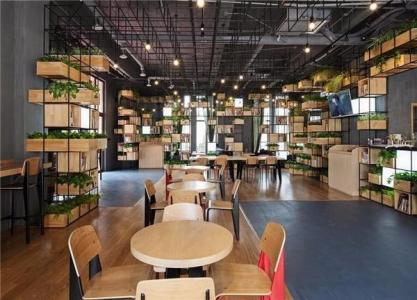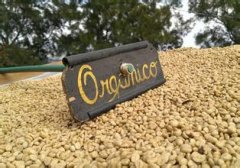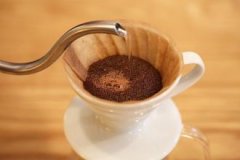A brief introduction to the treatment method of grinding degree and baking degree of delicious Kenyan boutique coffee beans

Kenyan coffee harvest season
There are two harvest seasons in Kenya, the main harvest season is from October to December and the secondary harvest season is from May to July.
Kenyan coffee processing
Large farms usually have independent treatment facilities. A large number of small farmers usually pick ripe coffee fruits by hand. Coffee picking is a labor-intensive job that requires the whole family to deploy and even hire workers during the harvest season. The fresh fruit of the picked coffee needs to be delivered in time to the cooperative-owned coffee processing plant for pulping, which may be carried by ox carts, pick-up trucks or trucks. After peeling, Parchment coffee is briefly kept in the cooperative's processing plant and sent to a privately owned factory for shelling treatment.
The raw bean comes from the Kato Boya processing plant in Neri and comes from a nearby family farm. About 2023 coffee trees are planted on half an acre (about 250 square meters) of land. The Kato Boya processing plant is managed by Barichu Farmers Co-operative Society Limited. Neri has always been a classic coffee producing area in Kenya, relying on Mount Kenya, with a favorable environment for coffee growth. About 65% of Kenyan coffee comes from small farmers and 35% from large farms.
The parietal leaf of the iron pickup is bronzed, and the bean grain is large, pointed, oval or thin. Everyone is familiar with the well-known Mantenin, Blue Mountain, Elephant Bean, Kona, Yunnan Dou …... Wait. They are all derived from iron pickups.
Bourbon "Bourbon" bourbon is an ancient and excellent variety juxtaposed with iron pickup, and some botanists believe that bourbon is an early variety of iron pickup transplanted to Yemen.
From nearby family farms, about 2023 coffee trees are planted on half an acre (about 250 square meters) of land. The Kato Boya processing plant is managed by Barichu Farmers Co-operative Society Limited. Neri has always been a classic coffee producing area in Kenya, relying on Mount Kenya, with a favorable environment for coffee growth. About 65% of Kenyan coffee comes from small farmers and 35% from large farms.
Kenyan coffee is mostly grown at an altitude of 1500m, 2100m, and is harvested twice a year. To ensure that only ripe berries are picked, people must tour the forest about seven times. Kenyan coffee is grown by small farmers. After they harvest the coffee, they first send the fresh coffee beans to the cooperative cleaning station. The washing station sends the dried coffee to the cooperative in the form of "parchment coffee beans" (that is, coffee beans covered with endocarp) to the cooperative ("parchment coffee beans" is the last state of coffee beans before peeling). All the coffee is collected together, and the growers charge the average price according to their actual quality. This method of buying and selling generally works well and is fair to both growers and consumers.
Kenyan coffee beans the Kenyan government takes the coffee industry very seriously, where it is illegal to cut down or destroy coffee trees. Kenyan coffee buyers are world-class high-quality coffee buyers, and no other country can grow, produce and sell coffee on a continuous basis like Kenya. All coffee beans are first acquired by the Kenya Coffee Commission (CoffeeBoardofKenya, CBK), where they are identified, graded, and then sold at weekly auctions, where they are no longer graded. The Kenya Coffee Commission only acts as an agent to collect coffee samples and distribute them to buyers so that they can determine the price and quality. The auction in Nairobi is for private exporters, and the Kenya Coffee Commission pays growers a price below the market price. The best coffee grade is bean berry coffee (PB), followed by AA++, AA+, AA, AB and so on. The fine coffee is shiny, delicious and slightly alcoholic. Auctions are also organized to meet the needs of dispatchers. This kind of auction usually has a small auction volume (3-6 tons each), with samples with the grower's logo for buyers to enjoy. After the auction, the exporters pack according to different flavors, different qualities and the quantity required by the blenders. This provides a great deal of flexibility for the dispatcher. Quality-conscious Germans and Nordic people are long-term buyers of Kenyan coffee.
Coffee cultivation in Kenya
Mainly by large farms (Estate) and cooperatives (Cooperatives) two types. The former generally has a large planting area and has independent coffee processing facilities. Most coffee production is done by a large number of small farmers, who form coffee cooperatives. The Coffee Cooperative Society employs special managers to supervise the coffee processing of its members, even to the point of managing each coffee tree.
Compared with shading planting in many high-quality producing areas, Kenyan coffee is obviously more spicy and unrestrained, and shade trees are not common. In addition, Kenyan coffee rarely participates in certification, variety and environmental factors make the use of pesticides necessary, and organic certification, which is popular in other countries, becomes rare in Kenya.
Important Notice :
前街咖啡 FrontStreet Coffee has moved to new addredd:
FrontStreet Coffee Address: 315,Donghua East Road,GuangZhou
Tel:020 38364473
- Prev

A brief introduction to the cultivation of glossy Kenyan boutique coffee beans, geographical location, climate and altitude
Some buyers of Kenyan coffee, especially Japanese businessmen, have expressed dissatisfaction with the Kenyan coffee industry system. Some businessmen say that the quality of coffee in the country has declined, and point out that buying directly from farmers may be a way to improve the quality. But in any case, Kenya's detailed rules and regulations and sound procedures are worthwhile for all coffee-producing countries.
- Next

Description of flavor and flavor characteristics of Ethiopian Bancimaji boutique coffee beans with light acidity, Jane
Although the flavor of Bancimaji Gesha Estate is different from that of Panamanian Geisha, it is still worth tasting. It is rare in many sun-dried bean regions in Ethiopia, distinguished from other coffee by its varied spices and fruit flavors. This estate is owned by Gashaw Kinfe Desta and is very close to the town of Geisha. Geisha Town is also a well-known variety G
Related
- Detailed explanation of Jadeite planting Land in Panamanian Jadeite Manor introduction to the grading system of Jadeite competitive bidding, Red bid, Green bid and Rose Summer
- Story of Coffee planting in Brenka region of Costa Rica Stonehenge Manor anaerobic heavy honey treatment of flavor mouth
- What's on the barrel of Blue Mountain Coffee beans?
- Can American coffee also pull flowers? How to use hot American style to pull out a good-looking pattern?
- Can you make a cold extract with coffee beans? What is the right proportion for cold-extracted coffee formula?
- Indonesian PWN Gold Mandrine Coffee Origin Features Flavor How to Chong? Mandolin coffee is American.
- A brief introduction to the flavor characteristics of Brazilian yellow bourbon coffee beans
- What is the effect of different water quality on the flavor of cold-extracted coffee? What kind of water is best for brewing coffee?
- Why do you think of Rose Summer whenever you mention Panamanian coffee?
- Introduction to the characteristics of authentic blue mountain coffee bean producing areas? What is the CIB Coffee Authority in Jamaica?

